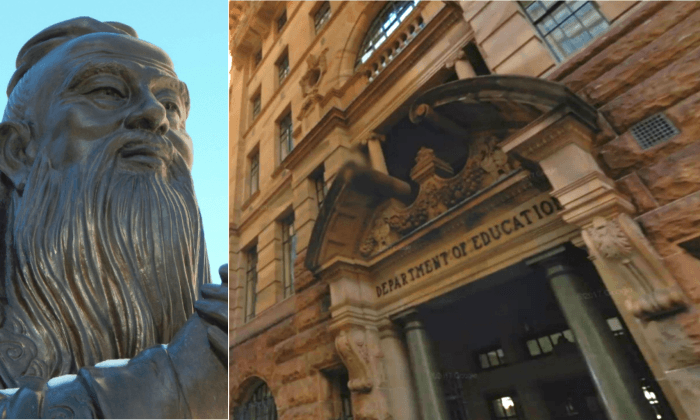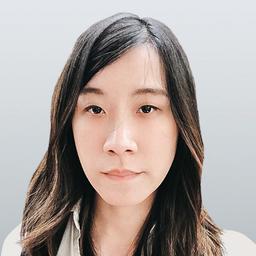Australia’s most populous state is expelling China’s state-sponsored Confucius Institute from its education department, and scrapping the Confucius Classrooms program from 13 public schools following a year-long internal review sparked by ongoing public concern over foreign interference.
The Confucius Institute (CI) program—administered by the Chinese Communist Party’s (CCP’s) agency Hanban—currently provides classes to 15 percent of Chinese language students in New South Wales public schools, according to the department’s report.
“The NSW Department of Education is the only department of education in the world that hosts a Confucius Institute,” the review noted. “The other 13 Confucius Institutes in Australia are all located inside universities.”
It recommended that the department “take action to ensure that there is no perception of inappropriate foreign interference in NSW public schools and the department.”
The perceived risks included having CCP officials on the Board of Directors, and having to abide by Chinese laws, which the department said had “the potential to conflict with the department’s Controversial Issues in Schools Policy.”
Charles Sturt University’s public ethics professor, Clive Hamilton, a vocal critic of the CCP, said of the announcement, “This was always a no-brainer. Now the NSW Department of Education will not have to register as a foreign agent.”
A Unique Arrangement
While the review concluded there was “no evidence of actual political influence being exerted by the Chinese government through the Confucius Institute in NSW public schools,” it also pointed out several points of concern.“Having foreign government appointees based in a government department is one thing; having appointees of a one-party state that exercises censorship in its own country working in a government department in a democratic system is another.”
The report acknowledged that parents, academics, and politicians have questioned the transparency and appropriateness of the arrangement between the department and Hanban.
Hanban, which oversees CIs around the world, is also known as the Office of Chinese Language Council International. Hanban is directly affiliated to the CCP’s Ministry of Education. All aspects of operations, from hiring teachers to teaching materials, are controlled by the CCP’s ministry.
“Under the agreement with Hanban, schools receive an establishment grant of US$10,000 for opening a Confucius Classroom and also receive free teaching materials (books and audio visual material) from Hanban,” the NSW government review stated. “The volunteer teacher is also a significant resource provided by Hanban.”
“With regard to key issues that influence our sovereignty and safety, we should actively carry out international propaganda battles against issuers such as Tibet, Xinjiang, Taiwan, human rights and Falun Gong. … We should do well in establishing and operating overseas cultural centers and Confucius Institutes.”
“The fact that numerous questions have been raised ... speaks to the conclusion that some see this arrangement as potentially compromising the department’s governance,” the report stated.
“To informed observers, the placement of an institute with foreign government involvement inside a government department is both unwise and problematic within the good governance expectations of our democratic political system.”
Associate professor in China Studies at the University of Technology Sydney, Dr. Feng Chongyi, told The Epoch Times the latest move by the NSW Government is a positive one and that he had always been opposed to having CCP-appointed officials oversee classroom operations in NSW “for a little profit.”
“In Confucius Institutes, not only are you not allowed to talk about anything not in the CCP’s interest, you cannot even say anything bad about the CCP—you cannot make any critical comments about the government. This is harmful to the core value of our democracy, freedom, and legal system,” he said. “It’s not appropriate even between democratic allied countries, let alone between the CCP and Australia.”
Feng added that given the trend of U.S. and Canadian universities using subtle ways to close down CIs, like not renewing contracts, “I’d expect universities in Australia follow soon.”





